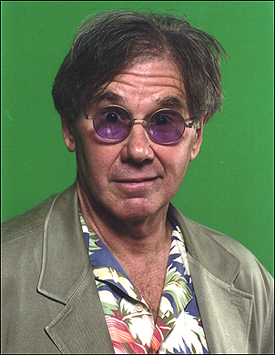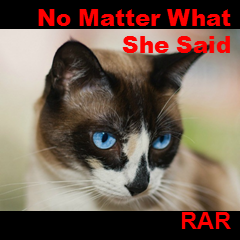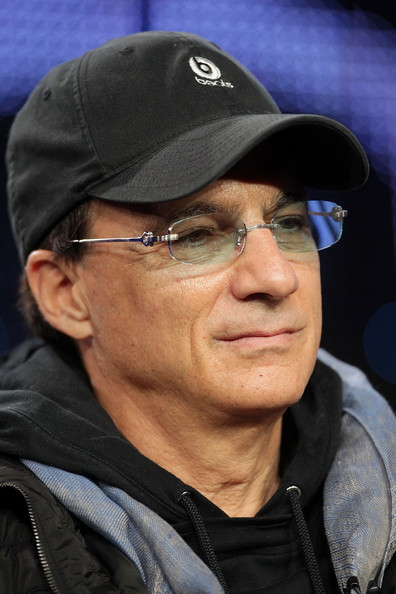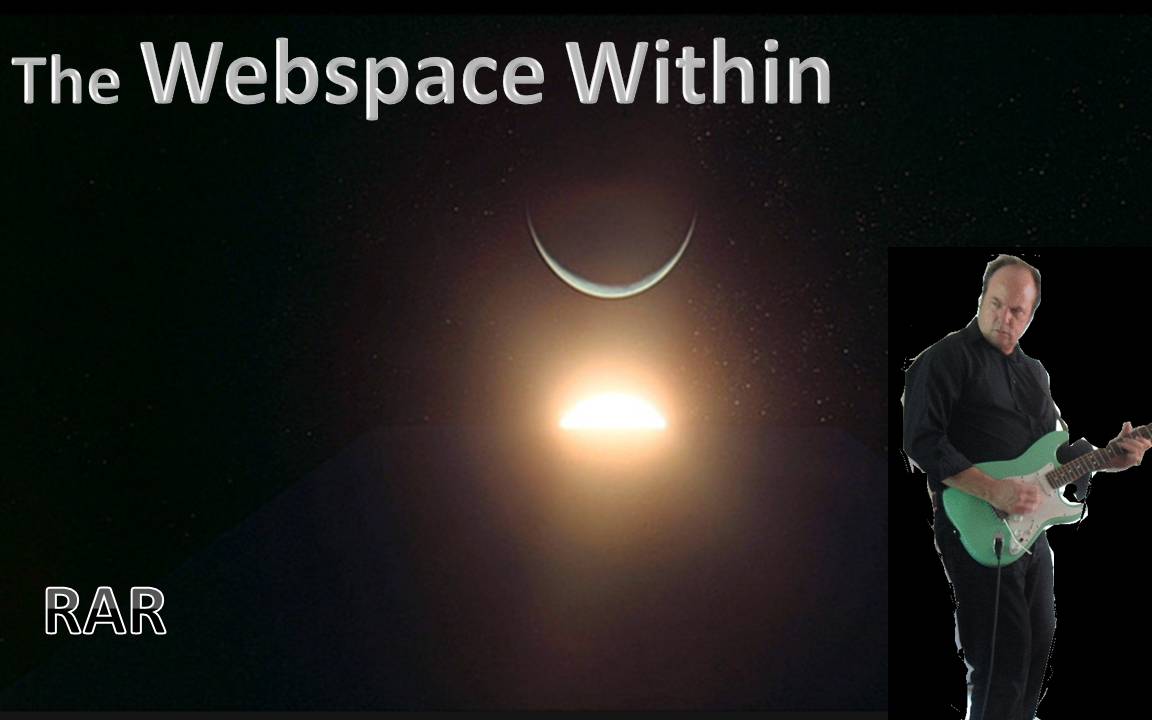|
I don't think Barry ever loved himself..." - Longtime
business partner Chuck Morris on the sad end of Denver's legendary
concert and venue promoter and artist manager.
By RAR
News
of the death of Colorado music promoter Barry
Fey will strike anyone who enjoyed music in the last half of
the 20th Century as a landmark event. There will be a sense of sorrow
that Fey's life ended in such a disheartening way; rather like a Richard
Cory success tale ending in suicide. The 74-year old Fey had reportedly
fallen into a mental depression over inability to recover from a hip
replacement surgery. In that, his is a typical story of fragility in old
age, when poor health can very quickly destroy in a person any sense of remaining
quality of life. That is a checkmate and terminal condition. Fey had
family, friends and associates, and he had sports and symphony and other
passions, and he seemed to live to be the guy in Bermuda shorts who is
always on stage at every live show right at the edge of the spotlight.
That last passion
probably returns less as time wears on. Fey retired in 1998 and then
returned as a consultant to the House of Blues,
and then started promoting other events. He was not a retiring type of
personality and his type often do not do well emotionally at handling diminished
physical capacity .
"I
don't think Barry ever loved himself...", his long-time
business partner Chuck Morris was
quoted as telling the Denver Post.
That seemed a little
jarring next to the affectionate quotes of Fey's four sons in articles
since his death in late April. Morris, on the other hand, would probably
know things about Barry Fey that perhaps even a close family member never would. They
had a forty-year business relationship as partners and competitors. Morris, who is now President and
CEO of AEG Live Rocky Mountains, which operates in Colorado, Wyoming,
Utah, Idaho and New Mexico, was a
Feyline executive from 1976-1986.
Morris, who is pictured
to the right in nutty professor mode, is a powerful
industry figure who got his start running a Boulder, Colorado music club
called Tulagi's On the Hill. It is a noteworthy establishment in the
history of American music; a venue whose management seemed prescient with
regard to musical trends that would grow and reverberate through the
business of popular
music for four decades thereafter (and counting). After being the launch
pad for The Astronauts in the 1960s, Tulagi's had been of similar
importance to Flash Cadillac and the Continental Kids in 1969. When
industry figures from the east and west coast became familiar with
Boulder - some had sent their kids to school at the University of
Colorado - it became a laboratory place for developing acts. The Eagles
were sent to boot camp at Tulagi's before their first album.
A wunderkind from
Brooklyn, Morris had dropped out of a PhD program at the University of
Colorado to manage Tulagi's, which had gone into bankruptcy despite its
glorious decade-plus history. His success as a venue manager and
promoter led to his recruitment into an executive position with Feyline
Presents.
There is a spectacular profile of Chuck Morris at
Celebrity Access that was done by Larry LeBlanc, who may be the
music world's most knowledgeable music journalist. He has been a chief
at Billboard and other music industry operations since 1970 and is
regularly quoted in major publications, including Time, Forbes,
the London Times and the New York Times.
CelebrityAccess.com is a tremendous resource for anyone interested in
detailed interviews on esoteric subjects with people you may or may not
have heard of, but who run or have run the entertainment business. Morris is one of
those guys.
On the strength of his
success with Tulagi's, Morris got Feyline Presents to put up money in
1974 to convert a place called Marvelous Marv’s in Denver into the
Ebbetts Field club, named for the ballpark that stood just ten blocks
from his childhood home. That opened for just four years, but during
that time Morris booked hot acts including Lynyrd Skynyrd, Steve Martin,
Carole King, and Richard Pryor. Morris then joined Feyline Productions
as a Senior Vice-President, responsible for running the booking and
promoting departments.
Anyway, in Morris Feyline
Presents got a captain up to the task of managing a concert load that included several
hundred shows annually, and that was growing fast. They produced all
over the place, but the jewel in their empire of venues
was the Red Rocks Amphitheater. That venue presented
The Beatles in 1965, two years before
Barry Fey arrived in Colorado from New Jersey, but Feyline Presents
turned Red Rocks into something with greater cache. The
U2 "Live at Red Rocks - Under A Blood Red
Sky" recording was the capper of the Feyline cool mark,
though far from the high water mark for the company's business. That came much
later, in 1994. Fey told Venues Today magazine - “Feyline,
at the apex of our career, promoted in St. Louis, Kansas City, Dallas,
Houston, Denver, Salt Lake City, Albuquerque and Phoenix on a steady
basis. We did 4,000 shows total. My best year — 1994 — I grossed $57
million because of all those high ticket prices. I netted about $3.5-$4
million. The most ever in my employ were 35, and seven were in the
accounting department. I didn’t like to go back there. I was scared of
that department.”
Here, from LeBlanc's piece, are excerpts from Morris'
account of his transition from Tulalgi's to Feyline, and thereafter.
They provide a fascinating glimpse into the world that Barry Fey
inhabited, and that he helped to create for Chuck Morris:
Did you have to fight for acts over
the three years of running Tulagi?
Like
nuts. And I fought against Barry Fey. He really owned Denver then as
a major promoter. I lost four or five bands to him.
One of the acts you lost to him was
the Eagles.
I had
booked the Eagles for the second show that they ever played. Irving
(Azoff) was then working for David Geffen and Elliot Roberts at
Geffen-Roberts (the booking agency which then handled the Eagles)
Irving or Elliot (who then managed the band) called and asked if I
would book this band for five nights for $100 a night. They wanted
to play in front of somebody before they recorded. It was two weeks
before Christmas 1971. I said, “It’s two weeks before Christmas.
Nobody is in Boulder. School is out. Everybody is skiing or back
home. I usually take my vacation then.” It was either Irving or
Elliot who said, “This band is going to be huge. We’ll come back and
play for you when the (first) album comes out.”
Now, Don
Henley, Glenn Frey, Randy Meisner, and Bernie Leadon had been in
some pretty famous bands (including Longbranch Pennywhistle, Poco,
and the Flying Burrito Brothers). Boulder was so hip that everybody
knew those bands, for sure. Also, I had Linda Ronstadt and the band
(backing her) play a couple of times before.
So I
booked the band at Tulagi. They were incredible. But they only drew
about 12 people a night. Nobody came. (Producer) Glyn Johns flew in
from London and took notes while they were performing because he was
producing their first album (“Eagles” in 1972). It was great being
at the bar watching him watching the show and taking notes, and then
talking to the band after the show. It was history.
About 18
months later, I decided that if I am ever going to get in the big
leagues I better join Barry Fey. I had never met him in person. We
had fought over the phone a few times. So I decided one day to call
him. I didn’t think he’d take my phone call but he did. He asked,
“What the fuck do you want?” I told him I was interested in opening
a club in Denver. At that point there was no Denver rock club. His
old Family Dog club had been dead and gone for years (since 1968).
There really wasn’t anything. I told him I wanted to work with him
and that I wanted to build a club in Denver.
To my
honest shock, he said he’d come up the next night and talk to me
which he did. He told me to find a club and he’d put the money up.
So I found a place called Marvelous Marv’s (with leopard or zebra
skin on the walls) and Barry bought it. We opened up Ebbetts Field
because I grew up 10 blocks from Ebbetts Field in Brooklyn.
Feyline
was then getting so big. Barry was doing the Rolling Stones in 10
cities, and doing tours with The Who. He really needed me at the
main company. We had decided the club wasn’t making any money. So we
sold the club and I became the senior VP at Feyline from 1976 to
1986. Then I decided to leave. I was managing a bunch of bands and
doing well.
Despite teaming up with Barry Fey, you continued to have run-ins
with Irving Azoff.
There
are so many stories about Irving. I have plenty of stories where he
bull-shitted me I will tell you. Some really funny stories.
At
the end of any deal with Irving, when the smoke clears he is the
survivor.
No
question. I will tell you the best Irving story. Barry and I did the
Eagles at Mile High Stadium (Aug. 8, 1976). We had the Eagles, Linda
Ronstadt, Pure Prairie League, all of the country rock stars at the
time on the bill. We did 28,000 (people) which was good but we paid
the acts a lot of money. I can’t remember the guarantee, but it was
a lot. The day of the show we asked Irving for some of the
(guarantee) money back. He told us, “I love you guys. I know you got
killed” and said he’d talk to the band.
So,
of course, you don’t hear from him.
Right. A month or two later, Barry tells me to call Irving and ask
him what was going on. Irving says that things were looking good.
Henley was probably going to say yes and Frey was in. There were
just the other three guys to give their consent.
Two
months later, I call him again. He says things are even better.
Meisner had said yes and the new guy (Don) Felder had said yes.
Irving says he’s waiting for Joe Walsh. I don’t call Irving for two
months. When I do, he says that “Joe is leaning toward saying yes.
So we’re really close. Don’t worry.”
Almost a year from the date, Barry comes into the office in an angry
mood and says, “Get Irving on the phone. It’s been a year.” Then he
says, “Instead of getting Irving on the phone, get Joe Walsh on the
phone.” Joe was living in Boulder at the time. I said “Barry, are
you sure you want to do this?” because you don’t phone manager’s
acts. Certainly, you don’t call Irving’s acts. Barry said, “I don’t
care. Get Joe on the phone.” But I wouldn’t do it. Barry calls Joe
and asks him if we are getting the money back from the show. Joe
doesn’t know what he’s talking about. Irving hadn’t talked him about
a reduction.
The
best part of the story is that five minutes later Irving Azoff is
one the phone screaming at Barry for having the audacity to call one
of his acts. I thought that was hysterical because that’s so Irving.
Irving never talked to any of them?
That‘s a little game that Irving plays. That’s just they way he is.
Irving can be the toughest mother in the world but if I was dying of
something and I needed a doctor, and the doctor was from India, the
doctor would be on a plane knocking on my door the next day. And
Irving would have paid the ticket. That’s the way he is with his
friends. I love Irving even though he’s competing against us now
with Ticketmaster.
How did your co-venture with Bill Graham Presents come about?
In
1997, when Barry announced his retirement (and Universal purchased
the remaining 50% it didn’t already own of Feyline Presents) I
decided it was time to go back to start my own promoting company. So
I called my friend Gregg Perloff at BGP. We had co-promoted a lot of
dates with BGP with Bill. I had almost taken the House of Blues’
job. They had bought out Michael Cohl and they offered me the job to
take over when Barry was retiring. Then they changed their mind
about hiring me. So I called Greg and he and Nick Clainos who ran
BGP—Bill’s two sidekicks—were on a plane here the next day and we
started Bill Graham Presents/Chuck Morris Presents.
My
first thing was that I wanted to buy Mammoth Gardens (which had once
presented such acts as Jimi Hendrix, the Doors, the Who, and the
Grateful Dead) and make it a Fillmore. And that’s what we did.
As of this
writing, Barry Fey had no place that he could be buried in the Morrison,
Colorado cemetery, which had been his choice. It is a private town
cemetery reserved for town residents, and Fey reportedly purchased a
special permit years ago to be interred there, but over time had lost
the paperwork to prove his claim.
Somehow that
weird sidebar to the death of Barry Fey puts Chuck Morris' frank
observation purporting Fey's lack of self love into some sort of cosmic
context.
In Barry Fey
there was a New Jersey native whose life had been awash with personal
connections and enormous success and who delivered himself to death and
for burial in a tiny Colorado town with which his only connection was
the nearby Red Rocks venue, where in life so much of his soul had
resided, but to which he held no legitimate claim in death.
Does that
arc not portray the very essence of a promoter's strange life?
_________
___________________
|

Phil Lobel and Barry Fey prior to the Rolling
Stones 1978 show at Folsom Stadium in Boulder, Colorado.
Feyline presented more Stones shows in the U.S. than any
other promoter. Among his other key associations were Lynard
Skynard and The Nitty Gritty Dirt Band.
EDITOR'S NOTE:
I personally find these photographs amusing because this is
what Boulder, Colorado looked like in 1978. There was a
powerful contingent of Jewish guys from the east coast who
moved to the state and morphed it into a place of extremely
eclectic tastes and styles. The principal conveyers of
culture were an aggressive set of nerds whose rangy musical
passions included the likes of Leo Kottke, the Nitty Gritty
Dirt Band, and Lynyrd Skynyrd.

Chuck Morris - President and CEO of AEG Live Rocky
Mountains.
Anschutz Entertainment Group (AEG) Live is a live
entertainment promotion subsidiary of
Anschutz Entertainment Group. It is the world's second
largest live show promoter.
Michael Jackson Trial - Dr. Conrad Murray
AEG is currently at the center of the Michael
Jackson wrongful death trial. They were the company who
booked Jackson for the "This Is It" tour and which arranged
the services of Dr. Conrad Murray to ensure that Jackson
would be physically able to meet the arduous requirements of
his contract with AEG.
Associated Press
reports that Michael Jackson’s
mother wants a jury to determine
that the promoter of Jackson’s
planned comeback concerts didn’t
properly investigate Dr. Conrad
Murray, who a criminal jury
convicted of involuntary
manslaughter for Jackson’s June
2009 death. AEG’s attorney says
the case is about personal
choice, namely Jackson’s
decision to have Murray serve as
his doctor and give him doses of
a powerful anesthetic as a sleep
aid. Millions, possibly
billions, of dollars are at
stake.
—Jurors
heard
from
AEG
General
Counsel
Shawn
Trell,
who
discussed
in
detail
the
company’s
contracts
with
Jackson
and
Murray,
as
well
as
its
dealings
with
the
pop
singer’s
estate.
—The
jury
was
shown
an
email
in
which
Trell’s
boss
described
Jackson
as
“the
freak”
on
the
same
day
the
singer
signed
a
multi-million
dollar
agreement
to
perform
the
“This
Is
It”
shows.
Katherine
Jackson’s
attorney
said
it
demonstrated
AEG’s
disdain
for
Jackson,
while
defense
lawyers
said
it
was
shown
to
merely
embarrass
the
company.
WHAT
THE
JURY
SAW
—
Katherine
Jackson
left
the
courtroom
in
tears
after
her
attorney
questioned
Trell
about
whether
AEG
pushed
Jackson
too
far.
—
The
anatomy
of a
mega-concert
tour
as
attorneys
flashed
budgets
and
Trell
explained
the
mechanics
of
contracts,
tour
cancellation
insurance
and
wrangling
over
how
to
handle
Jackson’s
health
and
missed
rehearsals.
05/26/13 |



 Learning
from Jimmy Iovine
Learning
from Jimmy Iovine


